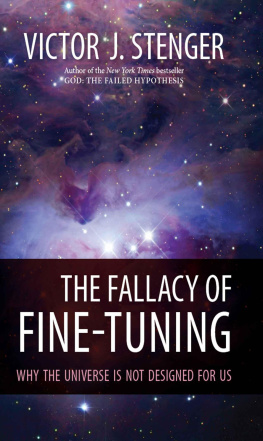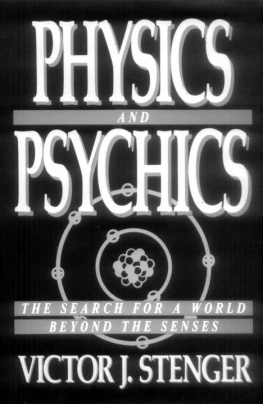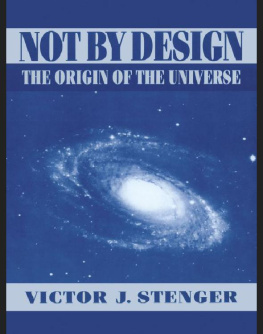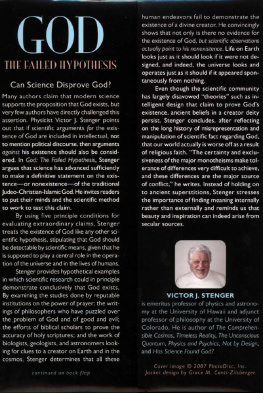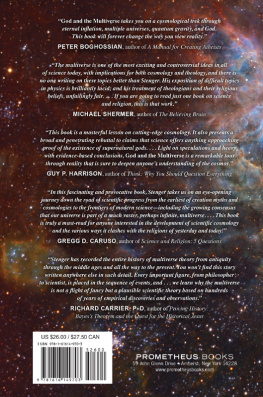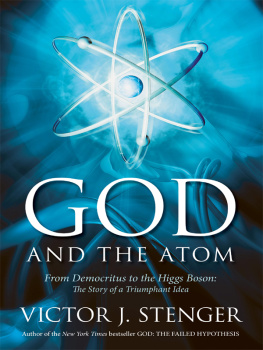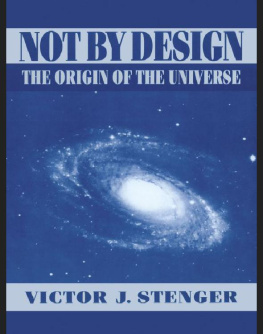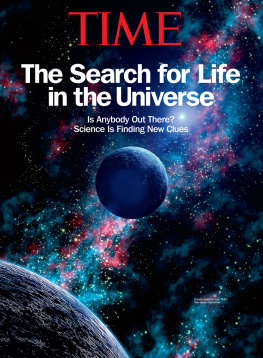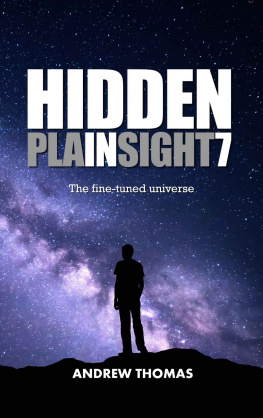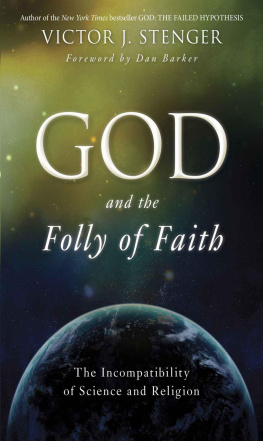
Published 2011 by Prometheus Books
The Fallacy of Fine-Tuning: Why the Universe Is Not Designed for Us . Copyright 2011 Victor J. Stenger. All rights reserved. No part of this publication may be reproduced, stored in a retrieval system, or transmitted in any form or by any means, digital, electronic, mechanical, photocopying, recording, or otherwise, or conveyed via the Internet or a website without prior written permission of the publisher, except in the case of brief quotations embodied in critical articles and reviews.
Inquiries should be addressed to
Prometheus Books
59 John Glenn Drive
Amherst, New York 142282119
VOICE: 7166910133
FAX: 7166910137
WWW.PROMETHEUSBOOKS.COM
15 14 13 12 11 5 4 3 2 1
Library of Congress Cataloging-in-Publication Data
Stenger, Victor J., 1935
The fallacy of fine-tuning : why the universe is not designed for us / by Victor J. Stenger.
p. cm.
Includes bibliographical references and index.
ISBN 9781616144432 (alk. paper)
ISBN 9781616144449 (e-book)
1. Causality (Physics) 2. Cosmology. 3. Equilibrium. 4. Religion and science. 5. GodProof. 6. Atheism. I. Title.
QC6 .4.C3S74 2011
530.01dc22
2010049901
Printed in the United States of America



A s with my previous books, I have relied heavily on the advice of others. Once again I have had superb commentary from people with a wide range of expertise, not just in physics but also in astronomy, biology, neuroscience, philosophy, history, and computer science. I want to especially thank physicist Bob Zannelli for his help on all aspects of this work, and for managing the e-mail discussion list avoid-L on which much of the discussion is carried out. Once again, physicist Brent Meeker has been invaluable in his ability to detect errors of science and logic, and for suggesting rewrites for sections that were not adequately clear.
Other members of avoid-L who have made substantial contributions include Richard Branham, Lawrence Crowell, Bill Jefferys, Don McGee, Steven Nunes, Christopher Savage, Sydney Shall, Brian Stilston, and Michael Tutkowski.
I also benefited immensely from the replies to my questions from the following notable physicists and cosmologists: Anthony Aguirre, Sean Carroll, Paul Davies, Roni Harnik, Mario Livio, Martin Rees, and Michael Salem. Of course, any errors in this manuscript are mine alone, and furthermore it should not be assumed that each of the people named agrees with all or any of my conclusions.
I am also very grateful to Paul Kurtz, Jonathan Kurtz, Steven L. Mitchell, and their talented and dedicated staff at Prometheus Books for their continued support of my work. I would like to single out Jade Zora Ballard for her tireless efforts at what must have been a demanding job of copyediting.
Finally, I could never carry out a difficult and time-consuming work such as this without the love and steadfast support of my wife, Phylliss, and our wonderful family.

I n the late nineteenth century in Lithuania, when my paternal grandfather, Anthony Stungaris, was a sixteen-year-old boy, he became gravely ill with diphtheria. His family members laid him out as comfortably as they could in the barn to die. A strong-willed neighbor girl named Benigna, who was two years older, nursed him back to health. They would marry and raise a family. Their first two daughters died in childhood, but they would eventually have six more children. My father, Vytautis, was the third of these, the first son and the last born in Lithuania.
At the time, Lithuania was under the control of the Russian Czar. Anthony worked as a caretaker in a royal forest preserve where no logging was allowed. One winter was so bitterly cold that nearby townspeople were dying, so grandfather allowed them into the forest to gather up dead wood lying on the ground. They did not stop there but cut down some trees as well.
So, as the story goes, my grandfather was sent to Siberia. When he returned a year or so later and could not find work, he decided to emigrate to the United States. He left Benigna and three children behind, promising to send for them once he was settled.
After two years of hearing almost nothing from Anthony, Benigna set out on her own for America, children in tow. Despite not having had a day of schooling (although she spoke several languages, not including English), she managed to get to America and to find her husband in Bayonne, New Jersey. In my house in Colorado I still have the small chest in which they carried all their belongings onboard the ship. My father was only three years old. The year was about 1906.
My grandfather had found a good job with the General Cable Company in Bayonne, and he and my grandmother eventually bought a four-family house on Avenue A, a block from Newark Bay, which in those years was unpolluted. Right down the street from the house was a rocky beach full of broken glass and the decayed Pavonia Yacht Club. When my father and mother married, they moved into one of the cold-water flats on Avenue A. I lived in that house until leaving for graduate school in Los Angeles at age twenty-one, a move my grandmother deeply disapproved of. She had taken my father out of school in the sixth grade so he could work and make money for the family.
My mother was born in Bayonne, her parents emigrating from Hungary. She was one of eleven children and left high school in the tenth grade.
Now, every human being on this planet can tell an interesting story about the events of previous generations that eventually led to their existence. In my case, if my grandmother had not taken the enormous risk of nursing my grandfather, I would not exist. And neither would my daughter, my son, and my four grandchildren. None of us would exist if my grandmother had contracted the disease herself and died. We would not exist if she had not embarked on that complicated journey to America, or if upon getting there she could not find her husband. And what about the many contingencies that led my father and my mother to meet? Carry the story back in time, generation by generation, species by species, until we reach that primordial accident that resulted in the origin of life, and you will realize how lucky each of us is to be here. If we attempt to calculate the a priori probability for all these events happening exactly as they did, we would get an infinitesimally small number.
Many people find it difficult to comprehend how events with very low probabilities can ever happen naturally. The fact of my existence and that of every other human, plant, and animal on Earth is so incredibly unlikely that in many minds it must be the result of some supernatural plan.
In his 1989 tome The Emperor's New Mind , mathematician Roger Penrose calculated that the state of the observed universe is one out of ten raised to the power of 10123 possible states. We could not even write this number out using every particle in the universe as a zero.

